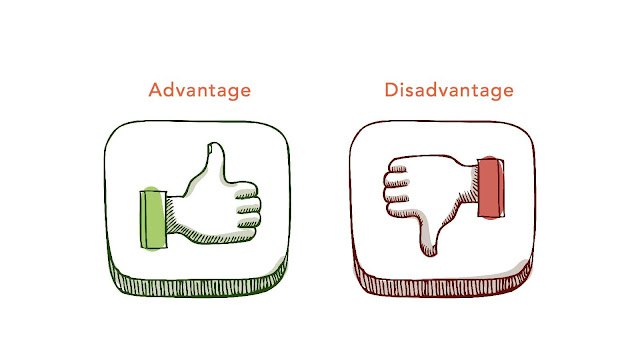 |
| Advantages And Disadvantages Of 15 Year Mortgage |
Advantages And Disadvantages Of 15 Year Mortgage
What is 15 Year Mortgage?
A 15-year mortgage is a type of home loan where the borrower repays the loan over a period of 15 years, rather than the traditional 30-year mortgage. This type of mortgage is characterized by higher monthly payments, but also has a number of advantages over the traditional 30-year mortgage.
However, it's important to consider that the higher monthly payments on a 15-year mortgage may be a burden for some borrowers, and may not be affordable for everyone. It's important to carefully weigh the benefits and drawbacks of a 15-year mortgage before making a decision.
Overall, a 15-year mortgage can be a great option for those who are looking for a way to save money on their home loan, and are able to handle the higher monthly payments. However, it's important to consider your financial situation and make the best decision for your individual needs.
Advantages of 15-year mortgage
A 15-year mortgage is a type of home loan that has become increasingly popular among homeowners due to its many advantages. Here are some of the key benefits of a 15-year mortgage:
- Lower Interest Rates: The interest rates on 15-year mortgages are typically lower than those of 30-year mortgages. This means that over the life of the loan, homeowners can save thousands of dollars in interest payments.
- Faster Equity Build-up: With a 15-year mortgage, homeowners build equity faster than with a 30-year mortgage, as a larger portion of the monthly payment is applied towards paying down the principal.
- Shorter Loan Term: The shorter loan term means that homeowners will be debt-free sooner, freeing up more money for other expenses or saving.
- Lower Total Cost: Although the monthly payments are higher, the overall cost of the loan is lower with a 15-year mortgage due to the lower interest rate and shorter loan term.
- Increased Financial Stability: By paying off their mortgage sooner, homeowners can increase their financial stability and reduce the amount of debt they have. This can help to improve their credit score and overall financial well-being.
- Lower Risk of Foreclosure: With a 15-year mortgage, homeowners are less likely to fall behind on their mortgage payments, reducing the risk of foreclosure.
- Improved Peace of Mind: The knowledge that their mortgage will be paid off in a shorter amount of time can give homeowners a sense of security and peace of mind.
It's important to keep in mind that the higher monthly payments on a 15-year mortgage may not be affordable for everyone, so it's important to carefully consider your financial situation before making a decision.
In conclusion, a 15-year mortgage can offer homeowners many advantages, including lower interest rates, faster equity build-up, and a shorter loan term. If you are able to handle the higher monthly payments, a 15-year mortgage can be a great option for improving your financial stability and reducing your debt.
Disdvantages of 15-year mortgage
While a 15-year mortgage has many advantages, there are also some disadvantages to consider. Here are some of the key drawbacks of a 15-year mortgage:
- Higher Monthly Payments: The most significant disadvantage of a 15-year mortgage is the higher monthly payments. Homeowners must be prepared to make larger mortgage payments each month, which can be a burden for some.
- Limited Budget Flexibility: With a 15-year mortgage, homeowners may have less flexibility in their monthly budget, as a larger portion of their income must be allocated towards mortgage payments.
- Reduced Cash Flow: The higher monthly payments can also reduce homeowners' cash flow, leaving them with less money for other expenses and savings.
- Less Liquidity: By committing to a 15-year mortgage, homeowners may have less liquidity, as a larger portion of their assets is tied up in their home.
- No Early Payment Penalty: While a 15-year mortgage offers the opportunity to pay off the loan sooner, it is important to note that there is usually no penalty for early repayment with a 30-year mortgage. This means that homeowners who want to pay off their mortgage early with a 15-year loan will not receive a refund for any unused interest.
- Higher Closing Costs: The closing costs for a 15-year mortgage are often higher than those for a 30-year mortgage, which can add to the overall cost of the loan.
It's important to carefully weigh the benefits and drawbacks of a 15-year mortgage before making a decision. While a 15-year mortgage can offer many advantages, it's not right for everyone, and homeowners must carefully consider their financial situation and long-term goals before making a decision.
In conclusion, while a 15-year mortgage can offer many benefits, it also has some disadvantages, including higher monthly payments, limited budget flexibility, reduced cash flow, and higher closing costs. Homeowners must carefully consider these factors before deciding if a 15-year mortgage is right for them.






0 Comments:
Post a Comment